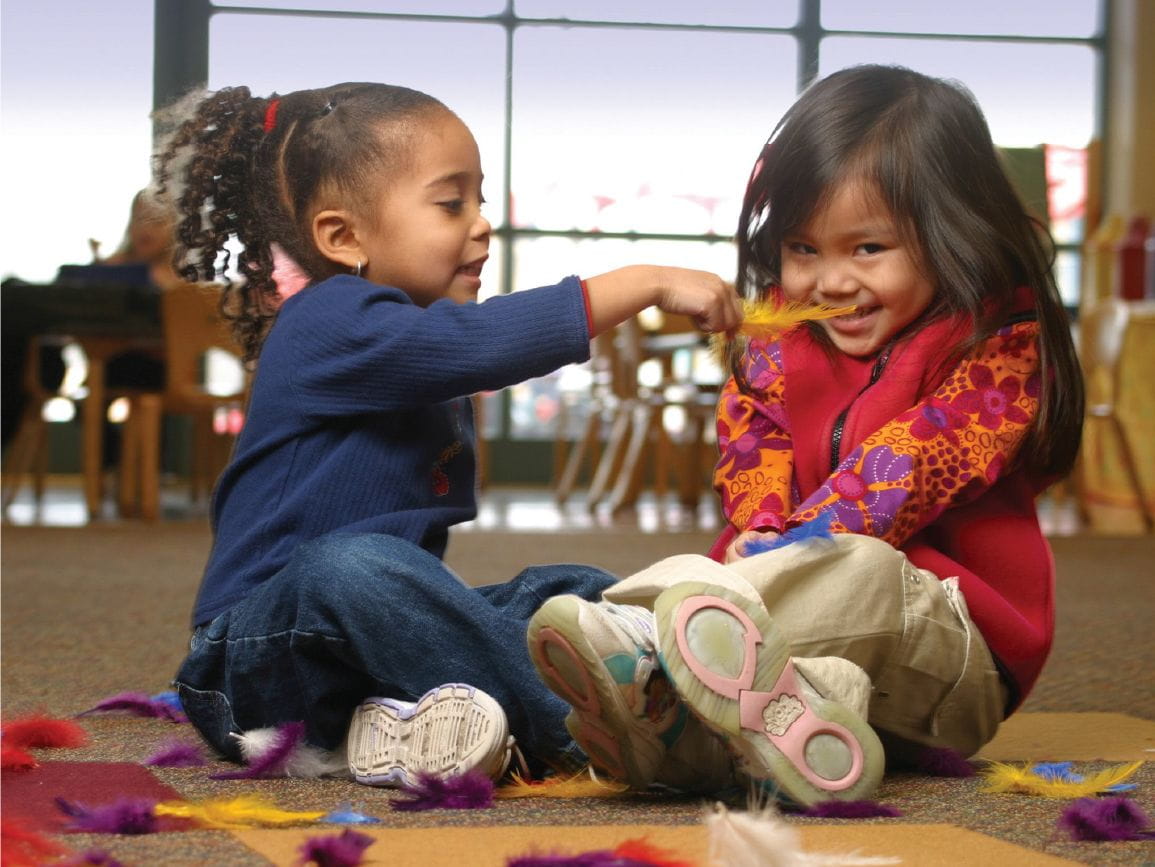We all experience stress at some point in our lives and children are no exception. In fact, they may experience stress more acutely than adults because they are often very aware of minor changes in routines. Children may also be aware of seemingly small changes in the feelings of adults or other children around them.
Stress in children can be grouped into two types: general or anticipated, which many children experience, and individualized stressors, which are unique to a particular child and family.
What Are Some Examples of Childhood Stressors?
- Addition of a new sibling to the family
- Starting toilet training
- Changing child care, school setting or classroom
- One or both parents traveling without the child
- Move from a crib to a big bed
- Stopping bottles or nursing
- A major change in schedule/routine
- A new teacher at child care or school
In many cases it is not possible to remove all general stressors from a child’s life. However, it is important to be aware of and sensitive to the factors that may be causing stress.
What Causes Individual Stress in Children?
Examples of individual stressors include:
- Parents separating or getting a divorce accompanied by new living or sleeping arrangements
- Illnesses and medical procedures
- A friend moves away
- A pet dies
How to Help Your Child Deal with Stress
-
Spend extra time with your child. Offer yourself as a play person. Oftentimes children try to work through stress in play, especially pretend play. For example, if your child has had a number of medical procedures, pretending to give these procedures to you may help process the experience. This might include giving you a pretend injection or x-ray.
-
Listen to your child. He may start out with light accounts of stress, but will tell you the more stressful parts if listened to well.
-
Be completely respectful. Even if what your child says is “cute” or hard to take seriously, never laugh at her concerns. Take her seriously and listen carefully. Sometimes, listening is all you need to do. You may or may not need to offer advice. Listening is always the most critical step in the process.
-
Spend time together as a family. Though it may seem next to impossible some days, try to participate in at least one or two activities you enjoy on a regular basis. It may help to schedule this time in your day, just as you would a doctor’s appointment or play date.
-
Keep your child’s routines consistent. Make sure he knows who is picking him up from child care each day, for example.
-
Find time for walks or visit your local playground together. As adults, many of us find that being outside in the natural world has calming effects. This is true for children as well. Sometimes after these times together, children will talk more about what has been hard in their lives.
- Read together. Choose books about how fictional or nonfictional characters deal with stress. Here are a few helpful suggestions:
- Dear Mister Rogers, Does it Ever Rain in Your Neighborhood?" A series of real letters Mister Rogers received and excerpts from his responses.
- "Scaredy Squirrel Makes a Friend" by Melanie Watts: the story of a squirrel who was too scared to meet potential friends.
- "Sheila Rae, the Brave" by Kevin Henkes: Sheila Rae isn't afraid of anything until she gets lost on a walk.
- "Tough Boris" by Mem Fox: even pirates cry when their parrot dies.
When to Seek Professional Help for Your Child
Keep a close watch on your child’s responses to stress. If you have persisting concerns, consult with your child’s pediatrician. Don’t hesitate—err on the side of seeking help sooner rather than later. In most cases a child’s reactions to stress are temporary. If dealt with thoughtfully and kindly, your child’s stress is likely to be short-lived.
If your children are showing signs of stress, take heart, parents: two leaders in the field of child development, T. Berry Brazelton and Stanley Greenspan, in The Irreducible Needs of Children: What Every Child Must Have to Grow, Learn, and Flourish, wrote that “supportive, warm, nurturing emotional interactions with infant and young children . . . help the central nervous system grow appropriately.” Your loving support, and these seven tips, can help your child alleviate stress.
The Resilient Child Webinar
Watch this Bright Horizons Family Matters webinar to learn how resilience helps children cope during times of change and stress within the family dynamic.
Articles Related to Stress in Children
- A set routine can help to reduce the onset of stress. Learn how to create a productive evening routine for your family.
- Making the tough decision to separate or divorce can be even harder when you have a family. Discover some tips for parenting through divorce.
- Changes in your child’s teaching staff can case anxiety and uncertainty. Here are some ways to help kids cope with and adjust to a new teacher.





